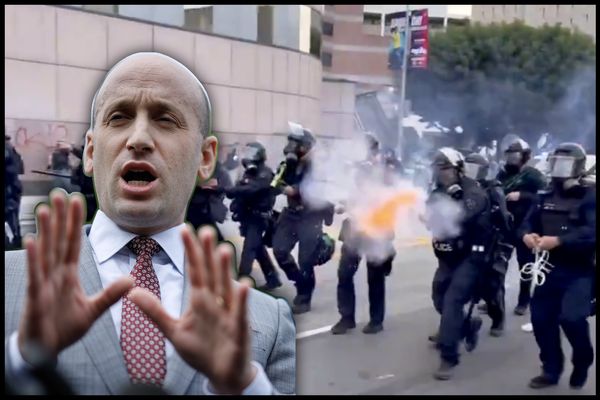
Maybe you’re frustrated – or delighted – that the Edinburgh festival is over and you didn’t see a thing. Either way, fringe comedy can’t be so easily avoided. Not so long ago, only a handful of festival acts went on to tour or perform substantial runs elsewhere. Now, several dozen take to the touring circuit, and many more tip up at London’s Soho theatre – a perpetual Edinburgh fringe-on-Thames.
In the former category, John Bishop was one among several high-end standups (Jason Manford, Tim Key and Mark Watson also among them) using Edinburgh to road-test material in advance of a future life elsewhere. Some complain that these works-in-progress divert custom from emerging acts who work year-round to prep their Edinburgh shows. Others would rather have under-rehearsed big hitters than no big hitters at all. Bishop brings a notebook on stage and tells us he’ll be ticking and crossing off the try-out jokes that do and don’t work. But that’s just patter: his set doesn’t feel raw, the gags go unticked and uncrossed.
The show, which delivers precisely what you’d expect from Bishop, is strung around three significant experiences he’s had in the last year: turning 50, his sons leaving home, and having a health scare. Each prompts uncontroversial but warmly funny reflections on how things are different now to back then, how he and his wife are getting on, and what a humble showbiz star he is. There’s a long anecdote (with a too-convenient-to-be-true punchline) about blagging tickets to a U2 gig for him and his lifelong mates, which de-glamorises his own celebrity while leaving the cult of celebrity in general, and Bono’s in particular, intact.

After the meeting-Bono story comes the meeting-the-Queen story, but after that, things get relatable, as Bishop starts contrasting modernity (Tinder, nut allergies, Channel 4’s Naked Attraction) with the 1970s. “Do you know what we used to do?” is the motif, as Bishop shows us how he first chatted up his wife, or (good routine, this one) how hard it used to be to start a car. His belief that things were better back then is entirely uncritical, but it’s possible to be lulled by the easy sway of Bishop’s comedy into not minding a jot.
If Bishop offers the sound of the 70s, American comic Desiree Burch is the shock of the new, a standup over-sharer in the 21st-century mould, albeit with a perspective entirely her own. Her new show Unf*ckable – staged in Edinburgh on the top floor of a double-decker bus – traces her long journey to sexual self-confidence. It starts, as she did, innocently, sharing get-to-know-you observations of British behaviour and tales of recent cat ownership. There’s a choice joke about why felines of yore threw in their lot with humans, whom they identified as “good at hunting, bad at self-esteem”.
But the meat of the show describes Burch’s stint as “a virgin dominatrix” in Manhattan, enacting others’ fantasies before she’d cultivated any of her own. With stories as lurid as this, Burch doesn’t have to work hard for laughs, while a later sexual harassment anecdote treads water for a while before getting to its alarming point. The timid protagonist of her stories is barely discernible in the extravagant personality on stage. But Burch fashions big laughs from this standup sexual bildungsroman, and some of the jokes (when asked to play a slavemaster to her client’s slave: “This might be the only reparations I’m getting!”) are smart as her old whip.

Tom Ballard, like Burch, is Soho-bound. His show Problematic – like its award-nominated predecessor – is politically engaged and examines whether PC is a good or bad thing. The show is thoughtful, smart and tells both good jokes and a morbidly engaging story of a reality TV show Ballard made with far-right Aussie politician David Oldfield. But on this occasion I found Ballard too loud (forever whooping and hollering “come on!” after his punchlines) and self-regarding. “Unclench, Edinburgh!”, he shouted at us, implying – with little foundation – that his material had shocked us into silence. Quoting all the jokes, meanwhile, from a Roast Battle he waged two years ago against Jimmy Carr felt self-satisfied and second-hand.
The show would (and maybe will) be much improved were Ballard to dial down the truculence and trust the material. In the meantime, a lighter touch is on display in Natalie Palamides’ show Laid, which won her the comedy festival’s best newcomer award. An extended metaphor for anxieties about fertility and maternity disguised as a clown show (or is it vice versa?), Laid dramatises the life cycle of an egg, which hatches into Palamides, who lays several more throughout the show, each time asking: “Should I raise my egg, or eat it?” Directed by ex-comedy award champ and sexy clown Dr Brown, Palamides ropes her audience into the show, and into compromising positions, just as he once did. She’s less terrifying, but no less compelling, as she chirrups her faux-perky lines in a Judy Garland trill, keeping the domesticity show on the road as everywhere eggs are cracking. It paints a striking – if ridiculous – picture of the fear of having, keeping and losing children. And its repeating tableau of Palamides both sobbing over and eating her offspring omelette is rich and strange. The fringe is over, but images like these aren’t shaken off so easily.
-
John Bishop is on tour from 11 September. Desiree Burch is at Soho theatre from 9 to 14 October. Tom Ballard is at Soho theatre from Tuesday to 9 September. Natalie Palamides is at Soho theatre from 6 to 18 November.







